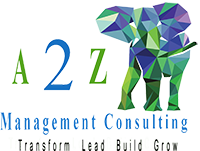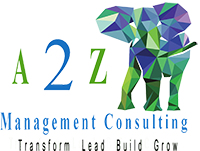While these genres certainly have their place, they often lacked the depth that could provoke thoughtful discussions about societal issues. Popular titles such as “The Hunger Games” by Suzanne Collins and “Divergent” by Veronica Roth captivated a new generation, expanding the audience and igniting discussions about societal structure and personal autonomy.
The Transition Period
As interest in dystopian narratives grew, the genre underwent a significant transformation. My reading habits revolved around light-hearted romances and predictable thrillers, which, while enjoyable, did not challenge my thinking or provoke deeper reflections on society.
The evolution from a casual reader to a more engaged and thoughtful individual exemplifies the power of storytelling and its capacity to ignite change.
Dystopian books became a refuge for those who wanted to explore worst-case scenarios in a safe space. However, as society evolved, so did the themes explored in literature.
Before and After: What Changed with Dystopia Books
The Starting Point
Before the rise of dystopia books, literature was dominated by themes of romance, adventure, and fantasy.
In addition, as society continues to grapple with complex issues, the value of these narratives remains ever relevant, urging us to reflect on our choices and the world we wish to create.
Television adaptations, films, and even video games based on dystopian themes have expanded the reach of these critical narratives, bringing them to wider audiences.
In summary, the transformation brought about by books about dystopian society has been profound.
Before and After: What Changed with Most Popular Dystopian Books
The Starting Point
Before delving into the evolution of dystopian literature, it’s essential to understand what constitutes a dystopian book. As we navigate an increasingly complex world, the insights gleaned from these narratives remain invaluable, encouraging us to confront the challenges ahead with both caution and hope. classic dystopian books
Young adult dystopian novels, such as “The Hunger Games” by Suzanne Collins and “Divergent” by Veronica Roth, gained immense popularity, drawing in a younger demographic.
Moreover, discussions surrounding the themes presented in these novels entered public discourse, leading to increased awareness of critical issues such as:
- Government Surveillance: Sparked conversations about privacy and individual rights.
- Social Inequality: Highlighted disparities within society and the impact of class structures.
- Technological Dependence: Raised questions about the role of technology in everyday life.
Where Things Stand Now
Today, the impact of famous dystopian books is evident in both literature and society. This genre has not only enriched my reading life but has also equipped me with the tools to navigate and understand the complexities of our world. Readers were introduced to nightmarish futures where totalitarian regimes and oppressive societal structures reigned. As a result, readers are presented with a broader spectrum of stories that challenge their perceptions and provoke critical thinking. dystopian series books
The benefits gained through the exploration of dystopian literature are numerous:
- Heightened Awareness: Readers become more aware of societal issues, prompting discussions on important topics.
- Enhanced Critical Thinking: Engaging with complex narratives encourages readers to analyze and question their surroundings.
- Empathy Development: Characters in dystopian settings often face moral dilemmas, fostering empathy among readers.
- Inspiration for Change: Dystopian narratives can inspire readers to envision and work towards a better future.
In conclusion, the transformation of dystopian literature has been profound. Works such as Suzanne Collins’ The Hunger Games and Veronica Roth’s Divergent introduced young adult audiences to dystopian themes, making the genre accessible to a younger demographic. Readers were drawn to tales of adventure, love, and triumph over evil.
Readers began to seek out these narratives not just for escapism, but as a means to understand and process their own realities.
The Transition Period
The transition period for dystopian literature can be traced back to the early 2000s, when the genre began to evolve. The concept of a dystopian world, however, provided a stark contrast, laying bare the flaws in our own societies through exaggerated and often terrifying scenarios.
Why Dystopia Books Were Chosen
The choice to delve into dystopian literature stemmed from a growing unease with the state of the world.

